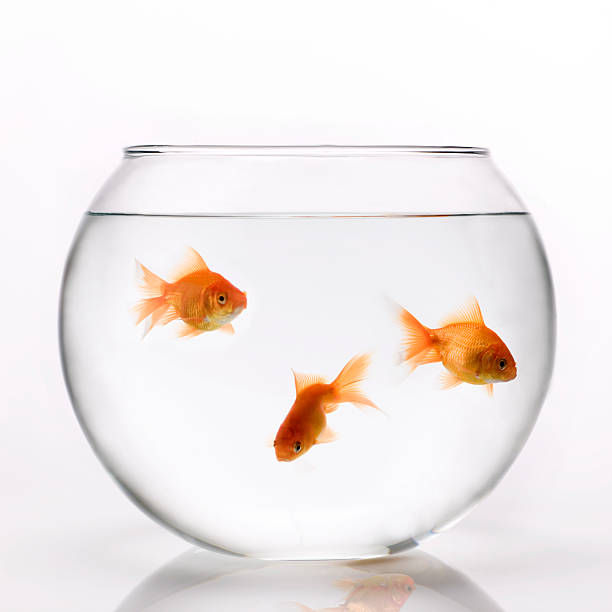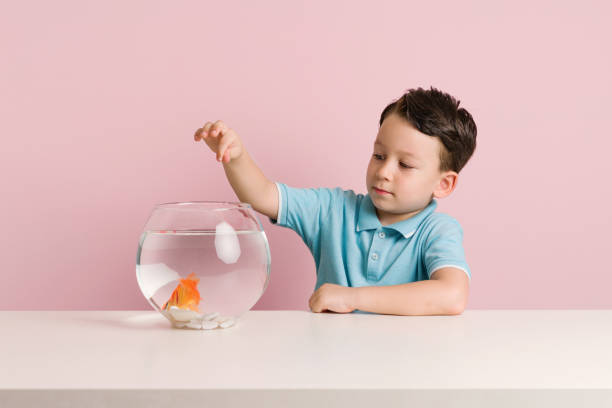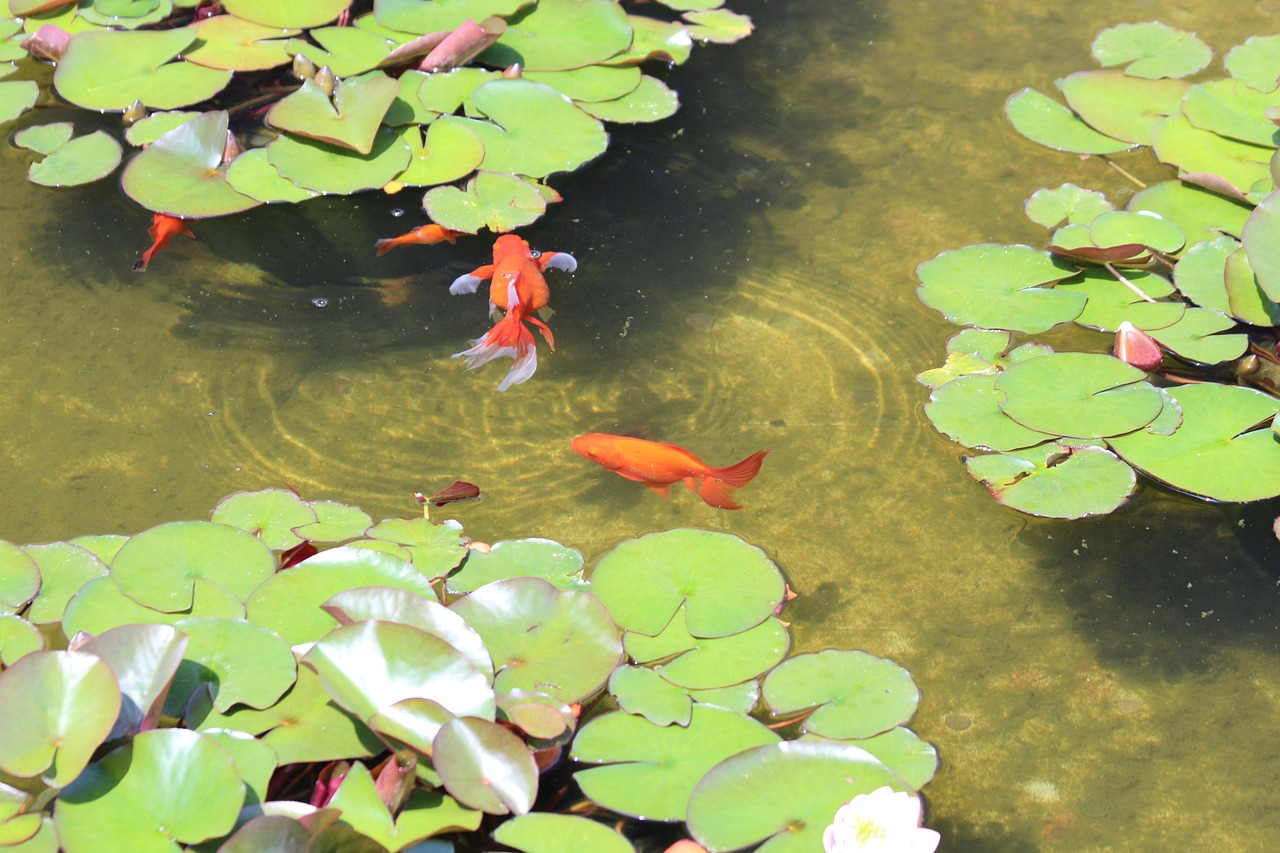Introduction
Do goldfish eat other fish? Yes, goldfish do eat other fish under certain circumstances. At The Goldfish Tank, we understand the importance of providing accurate and engaging content about goldfish care. Goldfish eating behavior can vary widely depending on several factors. Understanding this behavior is essential for anyone looking to maintain a healthy and peaceful aquarium environment. Goldfish are generally peaceful, but their behavior can change due to stress, insufficient space, or inadequate diet. Factors such as tank size, water quality, and the type of tank mates can influence whether goldfish eat other fish. It’s crucial to pay attention to these details to prevent any aggressive interactions in your aquarium.
By analyzing goldfish behavior and tank conditions, we can offer practical solutions to ensure your goldfish coexist harmoniously with other fish. Maintaining good water quality, providing ample hiding spots, and choosing compatible tank mates are key strategies. Monitoring their behavior and health will help in timely identification of any potential threats to other fish. In this article, we will explore why goldfish might eat other fish and how you can prevent this behavior. By diving deep into the factors that influence goldfish eating other fish, you will be better prepared to create a safe and thriving environment for all your aquatic pets.
Do Goldfish Eat Other Fish?
The simple answer is yes, goldfish do eat other fish. Understanding the reasons behind this behavior is crucial for any goldfish owner. At The Goldfish Tank, we aim to provide you with accurate and engaging information about goldfish care, including why goldfish might eat their tank mates and how to prevent it. Goldfish are generally peaceful fish, but they can display aggressive behavior under certain conditions.
One primary factor is size disparity. Larger goldfish are more likely to eat smaller fish, especially if those smaller fish can fit into their mouth. Goldfish are opportunistic feeders and might mistake smaller tank mates for food.
Another factor is territorial behavior. Goldfish require plenty of space to swim and thrive. When confined to a small environment, their stress levels can rise, making them more likely to display aggression. Additionally, inadequate hiding places can exacerbate this aggressive behavior by eliminating safe zones for smaller or more timid fish.
Poor feeding habits can also lead to goldfish eating other fish. If goldfish are not fed adequately and regularly, they may turn to their tank mates as an alternative food source. A diet lacking in essential nutrients can increase the likelihood of this aggressive behavior. Environmental factors, such as water quality and temperature, also play a significant role. Poor water quality can stress goldfish, increasing their likelihood of aggression. It’s essential to maintain pristine water conditions to keep stress levels low and ensure the health and wellbeing of all fish in the tank.
Feeding habits, territorial behavior, and environmental factors all contribute to whether goldfish eat other fish. By understanding these aspects, you can take proactive steps to minimize the chances of this happening in your aquarium.

Understanding Goldfish Behavior
Understanding goldfish behavior is essential when considering whether do goldfish eat other fish in your aquarium. Goldfish are naturally omnivorous, meaning their diet includes both plant and animal matter. In the wild, goldfish feed on algae, small insects, and crustaceans, which can influence their behavior in captivity. Their natural instinct to forage can sometimes lead them to nip at smaller fish, mistaking them for food. Stress levels can significantly impact goldfish behavior. High stress, caused by poor water quality or overcrowding, can make goldfish more aggressive, increasing the likelihood that they will eat other fish. Providing a stable environment with ample space and hiding places helps reduce stress and aggression.
Goldfish behavior is also influenced by their breeding habits. When goldfish breed, males can become more aggressive and territorial, posing a threat to smaller tank mates. Additionally, female goldfish may eat their own fry if they feel threatened or stressed, highlighting the importance of separating breeding pairs and fry.
Lastly, it’s essential to monitor behavioral changes in your goldfish regularly. Unusual behavior, such as excessive aggression or lethargy, could indicate stress or illness, which can adversely affect the entire tank’s ecosystem. Ensuring a balanced, stress-free environment will help minimize the chances of goldfish eating other fish, maintaining harmony in your aquarium.

Factors That Influence Goldfish Eating Other Fish
Do goldfish eat other fish? Yes, goldfish may sometimes eat other fish, and several factors determine this behavior. One key factor is tank size. Inadequate space increases stress levels, making goldfish more likely to display aggression. When goldfish lack enough room to swim, they may perceive smaller fish as threats or food.
Diet is another crucial factor. If goldfish are not fed adequately, they are more likely to hunt for food, including smaller tank mates like guppies or shrimp. Ensuring a balanced diet of flakes, pellets, and occasional treats can help prevent this.
Compatibility plays a significant role. Not all fish species make good companions for goldfish. Aggressive or very timid species can trigger a goldfish’s predatory instincts.
It’s essential to choose compatible tank mates that have similar temperaments and size.
Environmental factors such as water quality and hiding places also influence behavior. Poor water quality can raise stress levels, causing aggression. In contrast, providing plenty of hiding spots helps smaller fish escape if they feel threatened. During breeding season, goldfish may display increased territorial behavior.
Breeding pairs often chase and sometimes nip at other fish, which might result in unintentional harm or consumption of smaller fish.
Understanding these factors helps in creating a harmonious and safe environment in the tank. By addressing these variables, you can reduce the likelihood of goldfish eating other fish and ensure a balanced aquatic habitat.

Choosing Compatible Tank Mates
Compatibility is key when it comes to tank mates for goldfish. Goldfish are generally peaceful, but their opportunistic nature means they might eat smaller fish. Select fish that are similar in size or slightly larger to minimize the risk. Avoid highly aggressive or territorial species. While goldfish are not inherently aggressive, they can be stressed by aggressive tank mates. Stress can exacerbate any latent aggressive tendencies in goldfish, increasing the likelihood of predatory behavior.
Consider the water requirements of potential tank mates. Goldfish thrive in cooler water temperatures, unlike some tropical fish. Choose tank mates that can adapt to the same water conditions to ensure overall health and reduce stress levels. Provide plenty of hiding places. Aquatic plants, rocks, and other decorations can serve as hiding spots for smaller fish. These hiding places can offer shelter and reduce the chance of goldfish eating other fish.
Research specific fish species before adding them to your tank. Some popular choices compatible with goldfish include White Cloud Mountain Minnows and Zebra Danios. These fish are hardy and can coexist peacefully with goldfish in the same environment.
In conclusion, do goldfish eat other fish? Yes, under certain conditions, they can.
However, by carefully selecting compatible tank mates, you can create a harmonious and safe environment for all your fish. By following these guidelines, you can minimize the risk of predatory behavior and ensure a thriving, peaceful aquarium.
Providing Enough Space and Hiding Places
Do goldfish eat other fish? Providing enough space and hiding places in the tank is essential to prevent such behavior. Goldfish require a spacious environment to thrive. In a crowded tank, stress levels rise, leading to aggressive tendencies where goldfish might eat smaller fish. To mitigate this risk, ensure the tank is large enough for all inhabitants, ideally with at least 20 gallons of water per goldfish.
Another critical factor is the availability of hiding places. Goldfish are naturally curious and may prey on smaller fish if they have nowhere to hide. Incorporate plants, rocks, and decorative items that offer plenty of hiding spots for smaller fish. This not only provides shelter but also reduces the likelihood of predatory behavior.
Tank environment quality is equally important. A well-maintained tank with balanced water parameters promotes a peaceful coexistence. Regular cleaning and monitoring of the water quality ensure the health and safety of all fish. In conclusion, while the question “do goldfish eat other fish” can be answered affirmatively under certain conditions, providing enough space and hiding places significantly minimizes this risk. Create an environment that meets the needs of all fish to foster a harmonious aquarium experience.

Feeding Your Goldfish Adequately and Regularly
Do goldfish eat other fish? Yes, and one of the key reasons is inadequate feeding. When goldfish are not fed adequately and regularly, they may resort to hunting smaller fish out of hunger. To prevent such behavior, it is crucial to understand the dietary needs of goldfish and ensure they are met. Goldfish are omnivores, meaning they eat a variety of food types, including plants and small aquatic creatures. Providing a balanced diet that includes high-quality flake food, pellets, and occasional live food like brine shrimp can keep your goldfish from seeking out tank mates as meals.
Feeding goldfish regularly and in the right quantity is essential. Overfeeding can lead to water quality issues, while underfeeding can increase stress and aggressive behavior. A good rule of thumb is to offer small amounts of food multiple times a day, rather than one large feeding. Monitoring their eating habits can provide insights into whether they are getting enough food. If you notice leftover food after feeding, it may indicate overfeeding, while frantic searching for food could suggest underfeeding. Adjusting the feeding routine accordingly can help maintain a healthy environment.
It is also essential to consider the feeding habits of goldfish in a community tank.
Some fish may be more aggressive eaters, leaving less food for the goldfish.
Ensuring that all fish in the tank get their share will require observation and possibly separate feeding areas or techniques. By feeding your goldfish adequately and regularly, you can significantly reduce the likelihood of them eating other fish in the tank. Maintaining a balanced diet and consistent feeding schedule will promote healthy growth and reduce stress-induced aggression.
In conclusion, addressing the question, “Do goldfish eat other fish?” can often be linked back to feeding practices. By ensuring your goldfish are well-fed and not hungry, you can create a harmonious tank environment.

Monitoring Fish Behavior and Health
Do goldfish eat other fish and what can it tell us about their overall health and behavior? Monitoring your goldfish’s behavior and health is essential to prevent aggression and ensure a harmonious tank environment. A well-maintained tank and regular observation can help in identifying any potential threats that may lead goldfish to eat other fish. Keep a close watch on your goldfish’s stress levels. Stress can be a significant factor in why goldfish eat other fish. Stress can be caused by inadequate tank space, poor water quality, or aggressive tank mates. Identifying stress early can help you take corrective measures to prevent aggressive behavior.
Regularly check the fish for any signs of illness. Sick or weak fish can become targets and are more likely to be eaten by healthier goldfish. Maintain optimal water quality and perform regular water changes. Good water quality is crucial in keeping all fish healthy and minimizing stress. Ensure your goldfish are not excessively hungry. Inadequate feeding can drive them to investigate smaller tank mates as a food source. Observation is key. Spend a few minutes each day watching your tank for any signs of bullying or unnatural behavior. If you notice any goldfish consistently chasing or nibbling at other fish, it may be time to re-evaluate the tank setup and feeding regime.
By monitoring fish behavior and health closely, you can proactively address issues that might lead goldfish to eat other fish, ensuring a peaceful and healthy aquarium environment.

Conclusion
Do goldfish eat other fish? Yes, they can. As a goldfish care website, The Goldfish Tank strives to provide accurate information on goldfish behavior and how to manage it. Understanding the reasons why goldfish eat other fish is essential for maintaining a healthy aquarium. Aggression, hunger, and stress are key factors that may lead to such behavior.
Implementing measures such as selecting compatible tank mates and providing ample space and hiding places can significantly reduce the incidence of aggression.
Feeding your goldfish adequately and regularly is another crucial step in preventing them from eating other fish. Regularly monitoring fish behavior and health will allow you to act promptly if issues arise. Separating breeding pairs and fry is also a good practice to ensure the safety of all fish in the tank.
Ultimately, a balanced and well-maintained environment is essential to mitigate aggressive tendencies among goldfish. For more detailed advice on goldfish care, keep following The Goldfish Tank. Thank you for trusting us to keep your goldfish happy and healthy.
